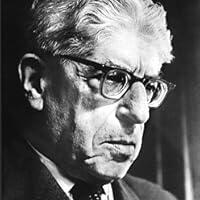
Ernst Bloch
Über den Autor
Ernst Bloch was a German Marxist philosopher known for his contributions to philosophy, aesthetics, and political theory. His most influential works include "The Principle of Hope," where he explores concepts of utopia and the role of hope in human existence. Bloch's philosophy emphasizes the importance of potentiality and the future, arguing that human beings are not only shaped by their circumstances but also by their aspirations and dreams. He believed that culture and art play a vital role in envisioning a better future, which is evident in his writings on aesthetics and politics.
Throughout his life, Bloch was engaged with various intellectual movements and was influenced by a range of thinkers, including Hegel, Marx, and Nietzsche. His unique synthesis of ideas contributed to a distinct philosophical approach that sought to reconcile the material and the ideal. Bloch's works continue to inspire contemporary thinkers and artists, making him a significant figure in 20th-century philosophy and a prominent voice in discussions about hope, possibility, and the transformative power of culture.